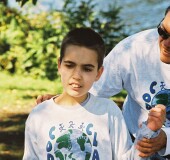
FRIDAY, Jan. 11 (HealthDay News) — Nearly 70 percent of children with autism suffer emotional trauma as a result of bullying, according to a new study.
The study also found that many children with autism fear for their safety at school and that those with autism and attention-deficit hyperactivity disorder (ADHD) or depression had the highest risk of being bullied.
Autism is a developmental disorder characterized by social, communication and behavioral difficulties.
Researchers surveyed the parents of more than 1,200 children with autism, and found that 38 percent of the children were bullied over a one-month period, and 28 percent were frequently bullied.
Immediate consequences of being bullied included emotional trauma (69 percent) and physical injuries (8 percent). Nearly 14 percent of the children who were bullied said they feared for their safety.
Eighteen percent of the children with autism were triggered into fighting back after being bullied, and 40 percent had an emotional outburst that led to school disciplinary action.
Nine percent of the children with autism bullied other children, and 5 percent frequently bullied others, according to the study, which was published Jan. 10 in the Journal of Developmental & Behavioral Pediatrics.
Children with autism who also had a conduct disorder or an oppositional defiant disorder were more likely to be bullies. Children with autism who also had ADHD, conduct disorder or oppositional defiant disorder were most likely to be bully-victims, which means that they’re both bullies and victims of bullying.
“Our results provide insights that will help teachers and school staff identify children with autism who may be at the greatest risk for bullying involvement, either as victims or perpetrators,” senior study author Dr. Paul Law, director of the Interactive Autism Network at the Kennedy Krieger Institute in Baltimore, said in an institute news release.
“Outside of school, parents should be encouraged to talk to their child about bullying, particularly if they are concerned their child may be a victim,” Law said. “Parents should also set up appointments to talk to the staff or teachers at their child’s school to learn more about how they can work to prevent bullying and help children involved in bullying cope with the consequences.”
About 1 in 88 U.S. children has an autism spectrum disorder, which can range from Asperger’s syndrome on the mild end to full-blown autism.
More information
The U.S. National Institute of Neurological Disorders and Stroke has more about autism.

